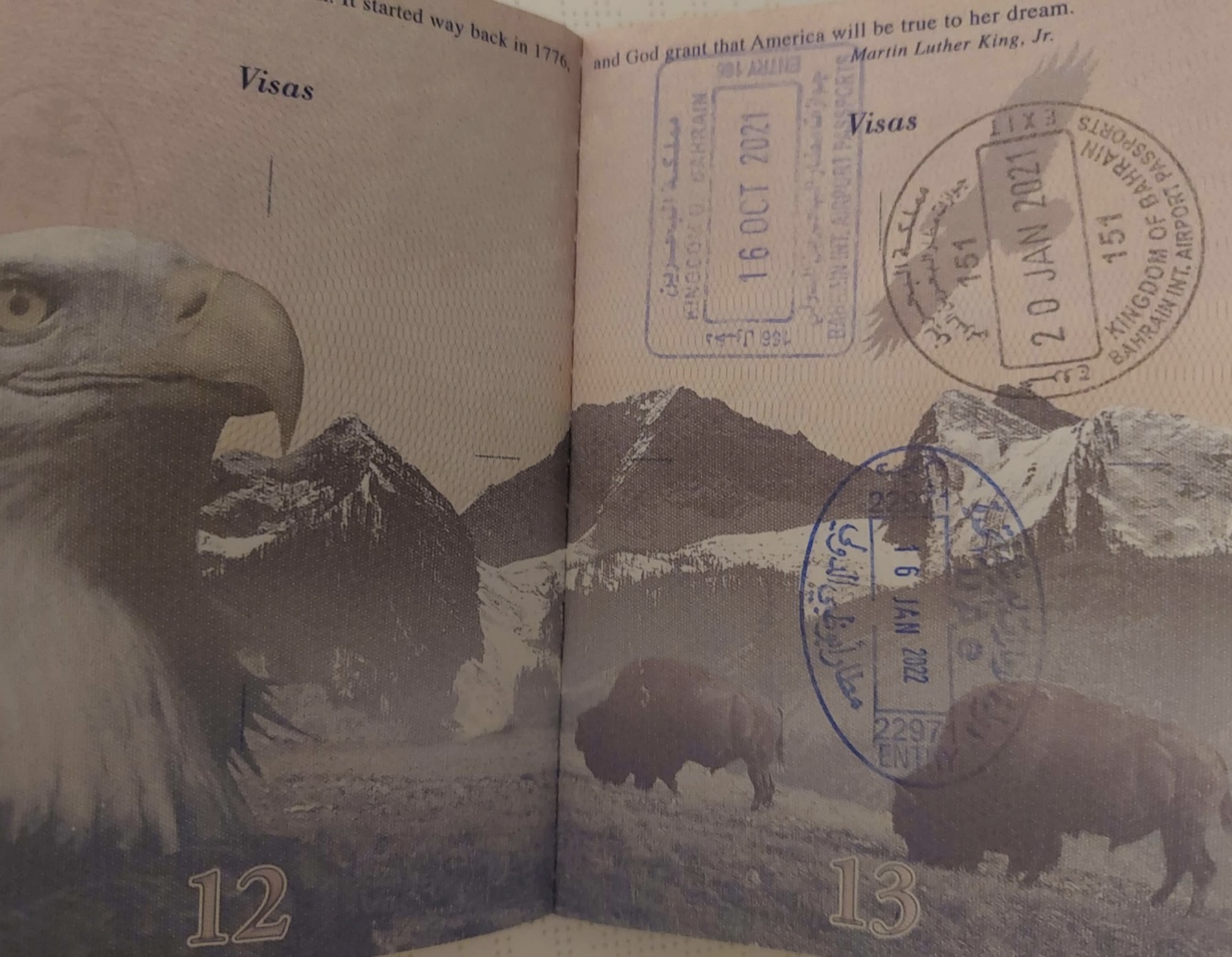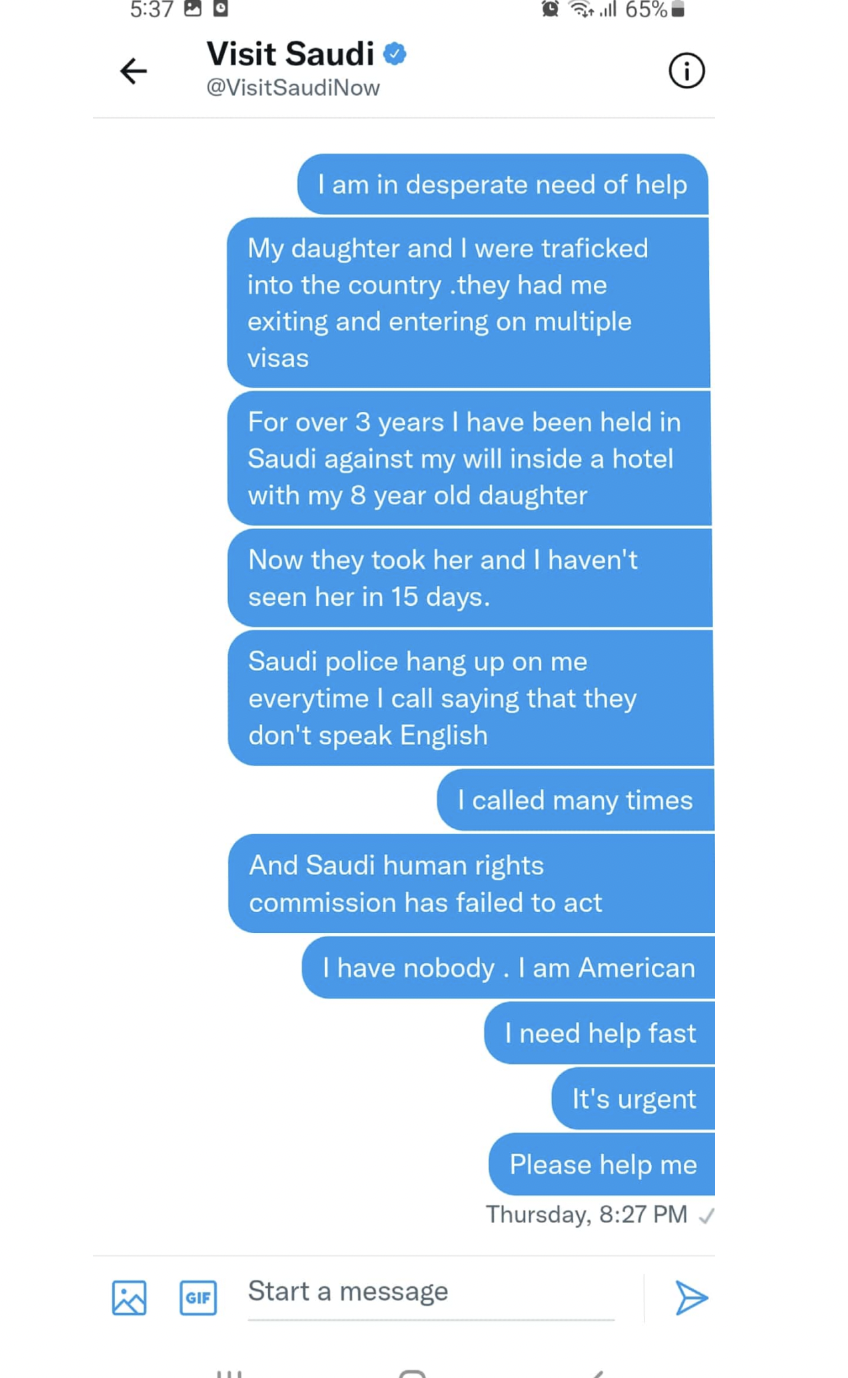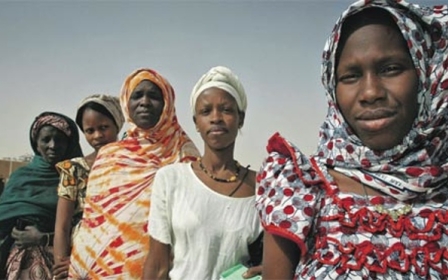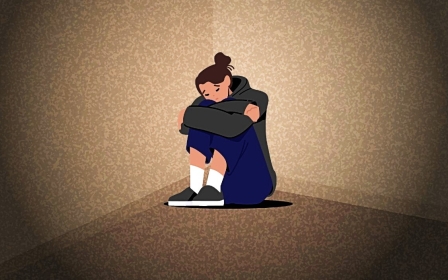'Please help me': US mother and daughter trapped in Saudi Arabia after husband refuses to let them leave
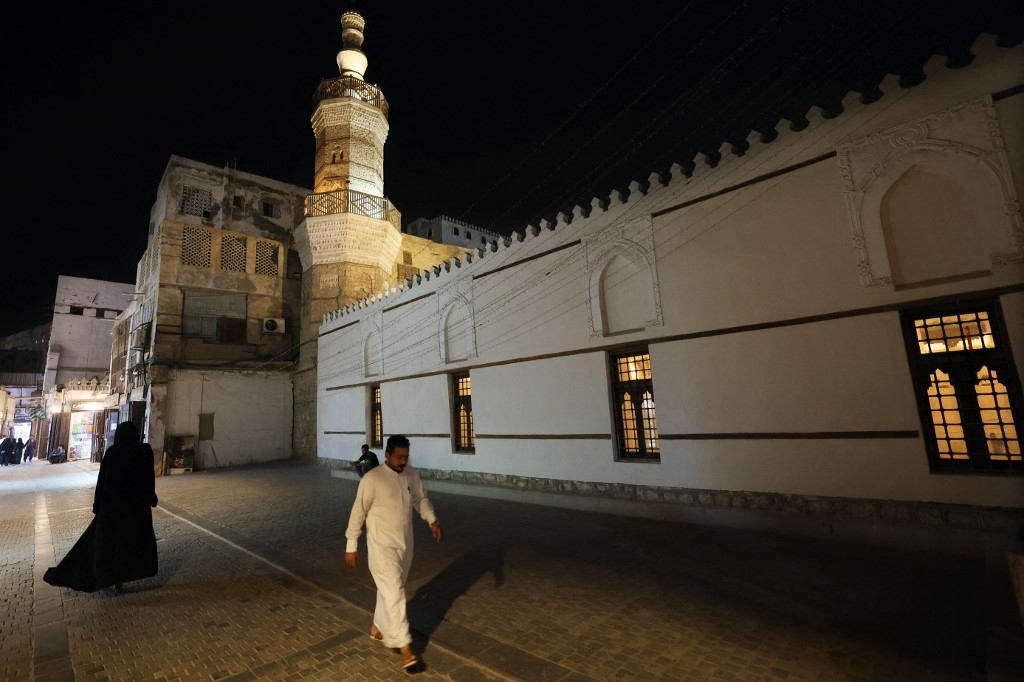
Carly Morris and her husband were on good terms. They met in 2012 on a Muslim marriage website. They would laugh together and he would cook her meals from the Arab world. But in 2018, they divorced after five years of marriage.
In the summer of 2019, her ex-husband persuaded Morris and their daughter Tala, five years old at the time, to visit Saudi Arabia with him. He wanted Tala to meet his family.
While Morris and Tala were US citizens, he was a man from Saudi Arabia who was in the US to complete his studies. Morris obliged, and off they went.
When they arrived, Morris' life turned into a nightmare.
"I trusted him," Morris told Middle East Eye on the phone from her hotel room in Buraydah, Saudi Arabia.
New MEE newsletter: Jerusalem Dispatch
Sign up to get the latest insights and analysis on Israel-Palestine, alongside Turkey Unpacked and other MEE newsletters
Morris was able to visit the kingdom on a tourist visa, which was to expire after 30 days. They had only planned on staying that long. Since Tala's father was a Saudi citizen, she was able to visit the country on a laissez-passer, a temporary travel document to permit the child to enter the country with her father.
Morris' ex-husband seized their documents and refused to give them back. Before her visa expired, she says he "entered and exited" her out of the country. She now has multiple stampings of visas on her passport.
Her ex-husband soon registered a hotel room under his name, and for the past three years, that is where Morris and her daughter have been staying. Every week, he'd come by and drop off groceries, food, and water. Then, on 30 March 2022, he reportedly picked Tala up in the early morning and she was never returned. All phone calls went unanswered.
On 4 April, Tala reportedly messaged Morris from her iPad saying she wanted to come back home.
"I can't believe how they could take a woman's child from her. I didn't even know where my daughter was. I didn't know where they took her," Morris said. "I didn't even know if she was alive. I sat in this hotel apartment every day for two months not knowing where my daughter was. And they were absolutely ignoring every one of my phone calls and messages. It was absolute cruelty."
She went to his house asking to see her, but his family told her they were not home. She got the police involved. She said her ex-husband's family was not cooperating and pleaded with them to freeze his bank accounts and give him a travel ban. Three months later, the police finally retrieved Tala - without her shoes - and she was reunited with her mother.
During that time, Morris discovered her ex-husband was filing for custody of Tala. She wrote a 16-page letter to the court - and on 23 August 2022, the Saudi court gave Morris full custody of her daughter.
Morris eventually got her passport back. But she soon found out that her ex-husband reportedly converted Tala's US citizenship into Saudi citizenship. While Morris can technically leave the country, her daughter cannot leave without her father's permission.
In Saudi Arabia, there is a legal male guardianship system set in place. When a woman is born, her father is her legal guardian until she is married, when her husband becomes her legal guardian. Women need approval from their "guardians" to apply for passports, travel, and work at a paying job. These rules extend to foreign women who marry Saudi men - women such as Morris.
"I don't speak Arabic. I don't speak a word of Arabic. I don't even know the name of the location that I'm in and the neighbourhood that I'm staying in," Morris said. "I don't even know the name of this hotel that I'm staying in because it's in Arabic. What am I doing here?"
'I am terrified'
A few weeks ago, Morris went public with her situation on Twitter. She later deleted the posts after her ex-husband's family alleged defamation. She told MEE that her ex-husband and his family are angry with her for gaining custody of the child. They have stopped bringing groceries, meals, and water to her doorstep.
"This room's rent will end soon and we basically have nowhere to go," she said. "I have contacted everyone you can imagine and nobody has helped me. Nobody can help us with a shelter, and I know there are shelters in this kingdom. We are stuck here with no way out."
Morris has reached out to the US embassy several times. The first time was over the phone and she said the "lady on the phone was just in shock over everything she was hearing. She immediately got the US embassy in Riyadh on the phone and they said they're working on this case immediately".
She later spoke to someone else from the US embassy who reportedly told her they were going to put a flag on Tala's passport in case the ex-husband tried to flee with her. She was also told that this was not a quick process.
"He told me we'd be in touch," Morris said. But it has been months and she has heard nothing back.
"I've called them up so many times. Like in one day, I called them 33 times," she said. "And I've sent them so many emails. And they completely just go in silence. Every time I call they say 'He's not in the office; he just stepped out.' So they've been absolutely no help."
Morris spends her days continuing to contact whomever she can think of, despite never hearing back. Her daughter has significant speech delays and was enrolled in Special Education and speech therapy in the US. In Saudi Arabia, she has not been enrolled in school. Morris also used to teach English online to students in the US, but stopped once she moved to Saudi Arabia.
"I haven't been sleeping. I've been having nightmares. I have been waking up at every little sound. What they did is absolute human cruelty, holding us here for three years against our will, just bringing food and water to our door like we are captives, not giving us any spending money," she said.
"We go for walks. That's about the extent of it. And on top of that, I have diabetes. He has been refusing to give me medical treatment. I've gone without medication for my diabetes for three years. You know, I've heard about these things happening to maids and domestic workers, but never once did I think it would happen to me."
Not the first time
In 2011, Bethany AlHaidari moved to Saudi Arabia to teach at a women's university while performing research for a graduate degree. While she was there she fell in love with a Saudi businessman, the NY Times reported. They eventually got married and had a daughter.
Over time, the marriage grew rocky when he emotionally and verbally abused her. She got a divorce, but her ex-husband remained the sponsor of her residency, as well as her guardian and that of her daughter. He also let her residency expire, which meant she was "illegal" in Saudi Arabia, and therefore could not work or travel. Eventually, after the NY Times published the story, she was able to find a way to escape.
MEE reached out to the State Department for comment, but did not hear back before this report's publication. The State Department's website states: "Married women, including non-Saudis, require their husband's permission to depart the country, while unmarried women and children require the permission of their father or male guardian.
"Minor children must have their father’s permission in order to leave the Kingdom. Children visiting their fathers in Saudi Arabia, even when there is a custody agreement, can be prevented from leaving unless the father consents. This is true even if the child is an American citizen. The U.S. Embassy and Consulates cannot obtain exit visas for the departure of minor children without their father/guardian's permission."
The website also states that if a foreigner and a Saudi Arabian living in Saudi Arabia divorce, Saudi courts "rarely grant permission for the foreign parent to leave the country with the children born during the marriage, even if he or she has been granted physical custody".
In 2019, Saudi Arabia introduced women's rights reforms, including lifting travel restrictions and allowing Saudi women to drive, register their children’s birth, and provide new protections against employment discrimination and sexual harassment.
The Human Rights Foundation is calling on Saudi Arabia to repeal its "oppressive male guardianship laws and to allow women to exercise basic civil rights without the permission of their male guardians".
"Carly and Tala’s case is sadly not an isolated one; there are countless other women and children stuck in similarly degrading circumstances in Saudi Arabia," said AlHaidari, now a senior fellow at HRF.
"The Saudi Arabian regime's archaic and discriminatory male guardianship and kafala laws are largely to blame for enabling men to entrap, abuse, and kidnap children with impunity."
Despite the reforms, Tala is still unable to come back home. And Morris refuses to leave without her.
"I'm so traumatised. I'm dealing with the emotions from all of this. I live in fear because I don't know what's coming next," she said. "I just want my daughter to be safe and for us to come home."
This article is available in French on Middle East Eye French edition.
Middle East Eye delivers independent and unrivalled coverage and analysis of the Middle East, North Africa and beyond. To learn more about republishing this content and the associated fees, please fill out this form. More about MEE can be found here.


